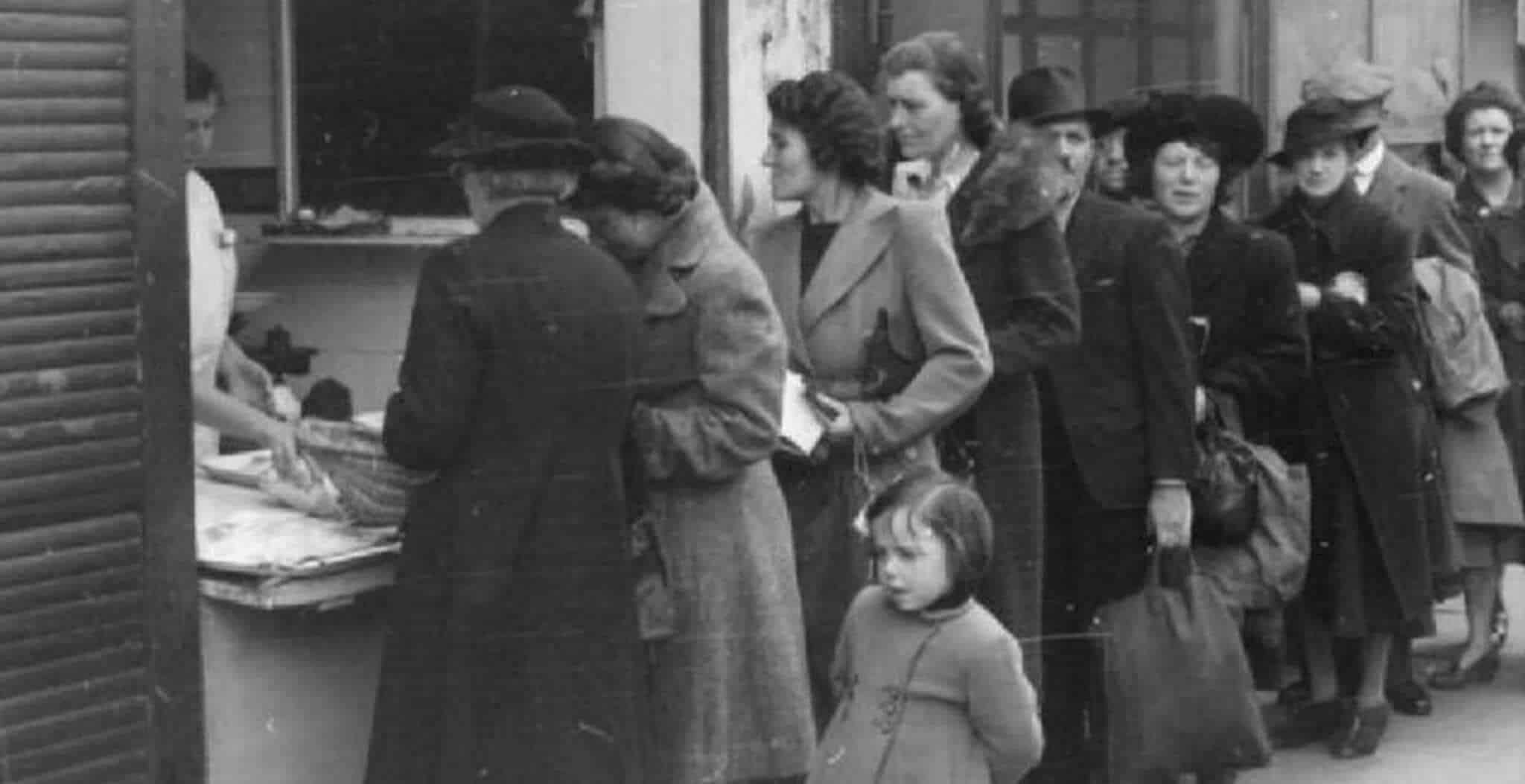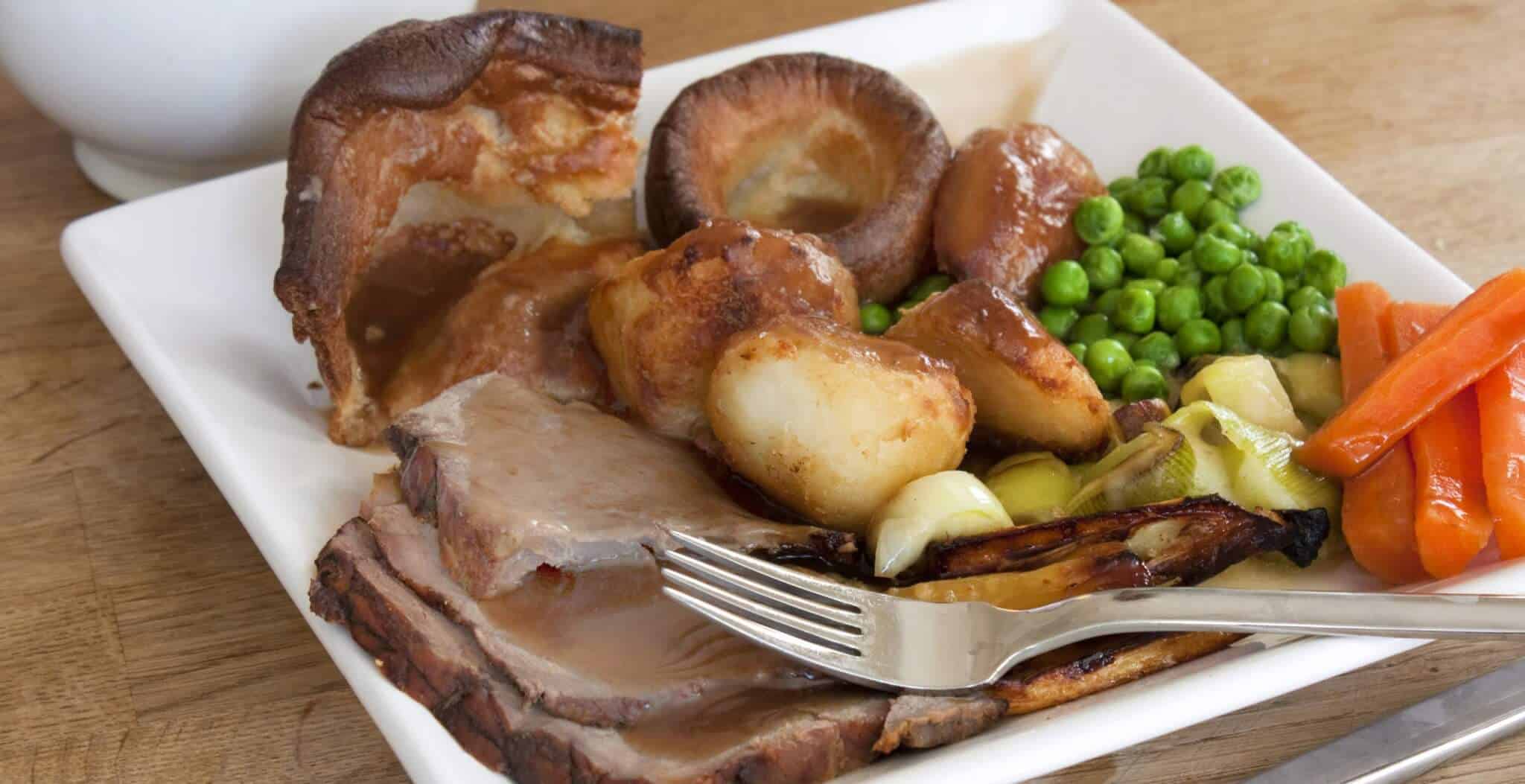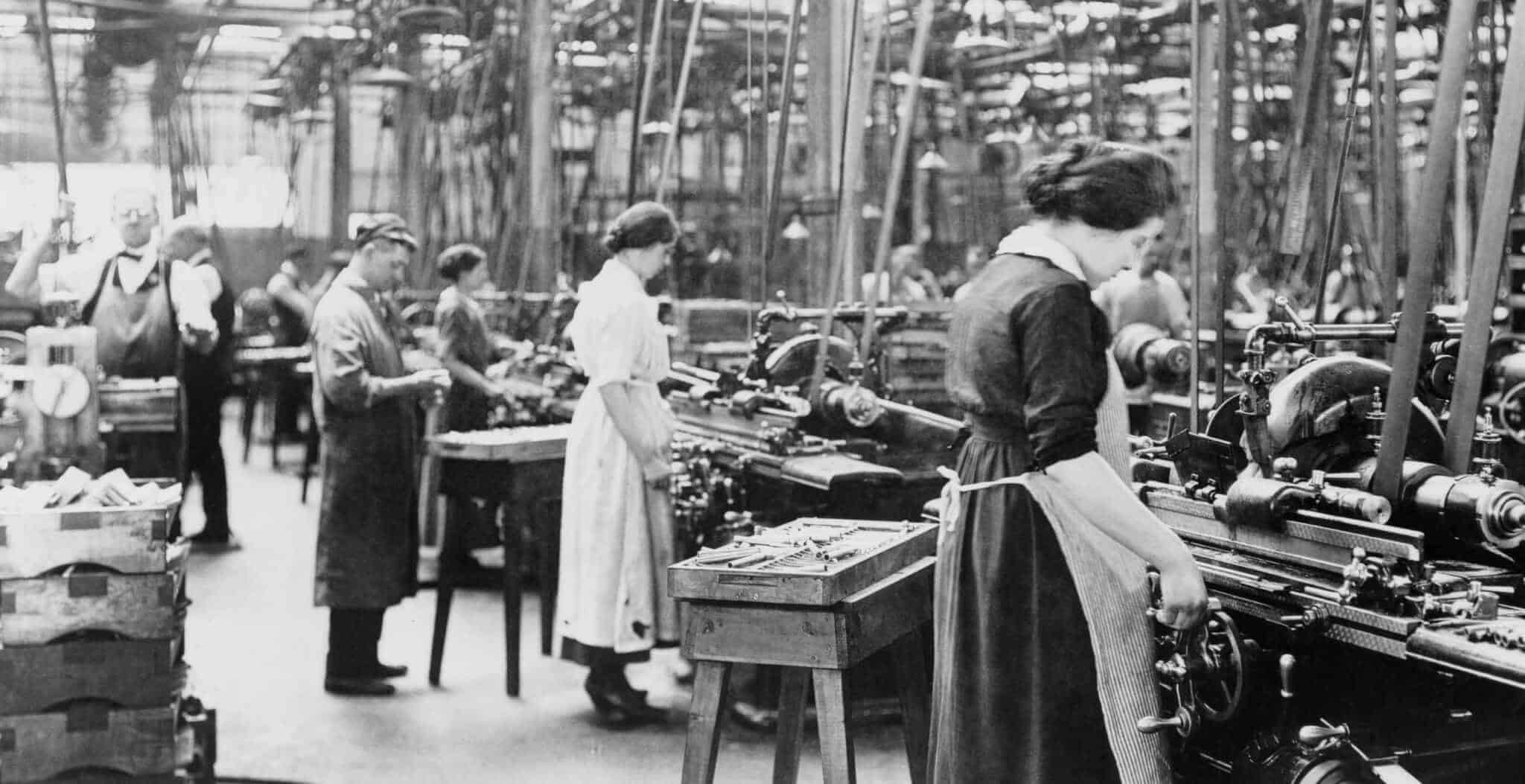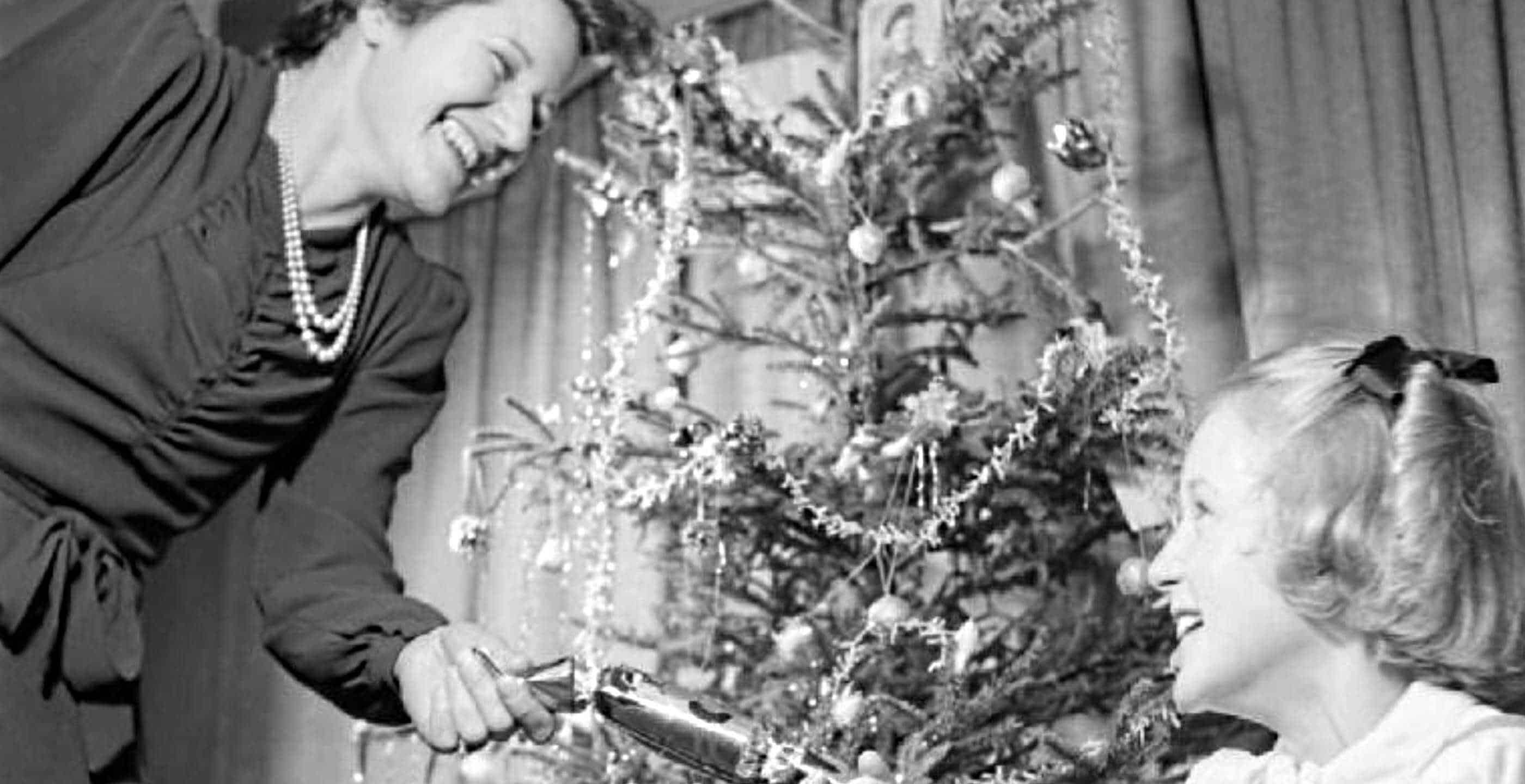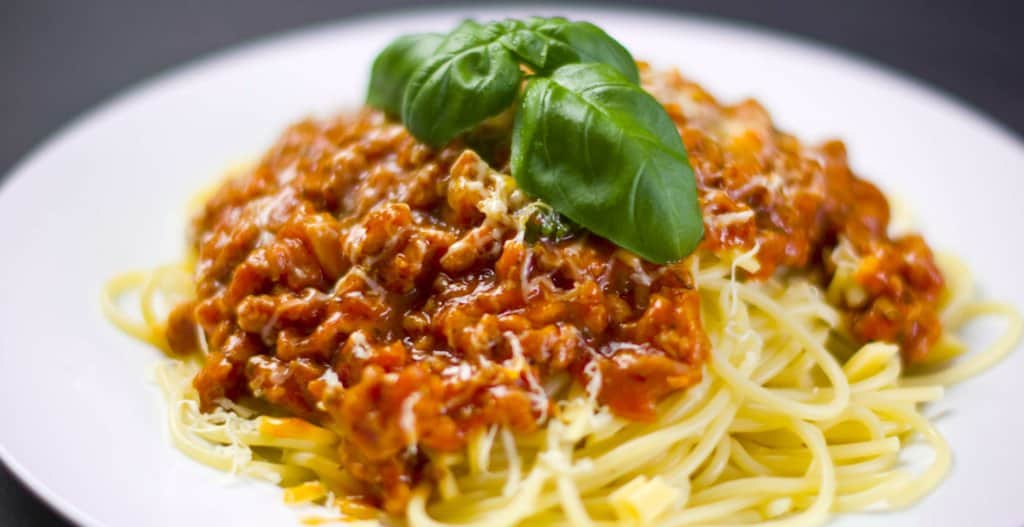Ever wondered how much food a person was entitled to during the rationing of World War Two?
Rationing began on 8th January 1940 when bacon, butter and sugar were rationed. By 1942 many other foodstuffs, including meat, milk, cheese, eggs and cooking fat were also ‘on the ration’.
This is a typical weekly food ration for an adult:
- Bacon & Ham 4 oz
- Other meat value of 1 shilling and 2 pence (equivalent to 2 chops)
- Butter 2 oz
- Cheese 2 oz
- Margarine 4 oz
- Cooking fat 4 oz
- Milk 3 pints
- Sugar 8 oz
- Preserves 1 lb every 2 months
- Tea 2 oz
- Eggs 1 fresh egg (plus allowance of dried egg)
- Sweets 12 oz every 4 weeks
Yes, I know what you are thinking… This doesn’t look like much, right?
In fact, ordinary people survived on such rations, although those who produced their own food were able to have that little bit extra.
You might be wondering how this was even possible.
Rationing was a means of ensuring the fair distribution of food and commodities when they were scarce. It began after the start of WW2 with petrol and later included other goods such as butter, sugar and bacon. Eventually, most foods were covered by the rationing system with the exception of fruit and vegetables.
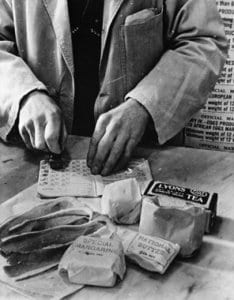
Ration books were given to everyone in Britain who then registered in a shop of their choice. When something was purchased the shopkeeper marked the purchase off in the customer’s book. Special exceptions made allowing for some groups of people who required additional food like underground mine workers, members of the Women’s Land Army and members of the Armed forces.
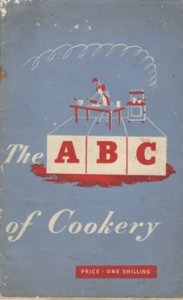
The Ministry of Food was a government department set up from the start of the war to the end of all rationing in 1958. Its aim was to regulate food production and usage. The Ministry of Food used numerous ways to help people make the most of their rations without wasting food, while at the same time giving them ideas to help make mealtimes more interesting. They introduced various campaigns, television and radio broadcasts as well as literature to educate the public.
As someone who was fascinated by the simplicity of the meal recipes the Ministry of Food encouraged the public to make, I began to collect leaflets and pamphlets produced for the Ministry of Food.
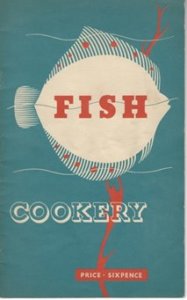
Along with this article I wanted to include a recipe leaflet for some insight into rationing. I looked through my collection to select one to include. I thought that I would want to include one that sums up rationing and I feel the leaflet on ‘Potatoes’ does exactly that.
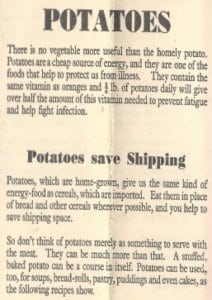
(Detail from leaflet below)
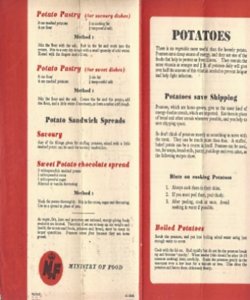
By Stephen Wilson. Over the past few years I have collected a number of leaflets, pamphlets, and books produced by the Ministry of Food around and during World War 2.
